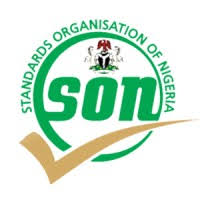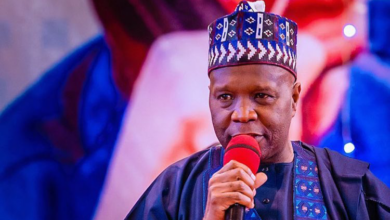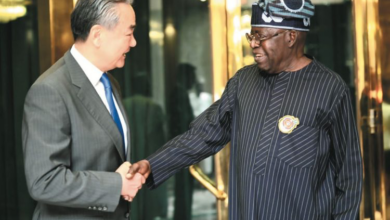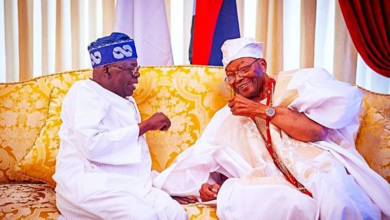SON Repositions Leather, Textile Sectors To Meet Global Standard

The Standards Organisation of Nigeria (SON) is urging stakeholders to adhere to standards in leather and textile sector, to take advantage of its potential to leverage into the lucrative global market valued at over $1 trillion and drive economic growth.
To achieve this, SON has been working closely with manufacturers, suppliers, and regulatory bodies to ensure Nigerian leather and textile products meet international standards.
This development is a result of SON’s strategic efforts to promote standardization and quality assurance in the leather and textile industry.
Ifeanyi Chukwunonso Okeke, director general/chief executive officer, SON, made this known Thursday, in Aba, the commercial hub of Abia State, at a stakeholders sensitisation/capacity building workshop, organised, by his organisation, to enlighten artisans and other manufacturers on the need to standardise their products.
Okeke said the SON has been working closely with stakeholders, including manufacturers, suppliers, and regulatory bodies, to ensure that Nigerian leather and textile products meet international standards.
Okeke, who was represented at the forum, by Chukwuma Aharanwa, director, South-East Regional Operations of SON, noted that in recognition of MSMEs, as drivers of the nation’s economy that SON has put in place a policy that ensures that MSMEs and other relevant stakeholders are involved in standards development process, through inclusion in technical committees (TC).
According to him, SON’s intervention has led to a significant improvement in the quality of leather products in Nigeria. Local manufacturers are now producing high-quality leather goods, such as shoes, belts, and handbags, that can comslete favorably with international brands.
The SON Boss said the repositioning of the sector is expected to have a positive impact on Nigeria’s economy. The sector is projected to create thousands of jobs, both directly and indirectly, and generate significant revenue for the government.
He expressed optimism about the development, stating that “Nigeria has the potential to become a major player in the global leather industry. With the right standards and quality assurance in place, our local manufacturers can produce high-quality leather products that can compete with the best in the world.”
Okeke said successful repositioning of the leather sector is a testament to SON’s commitment to promoting standardization and quality assurance in Nigeria.
According to him, he is motivated in the spirit of the Renewed+ Hope agenda to support the economy with local imvestions.
“This can be achieved through creatng the framework that can make made in Nigeria product to compete favourably.
“We decided to rain them on anti-trade bartier, Standardisation and quality assurance, accessibility to standard.
“One of the key element to trade is standards, it’s a global common language so our product must meet standards to boost export and reduce rejection at the international market,” Okeke said.
He emphersised that organization’s efforts are expected to have a positive impact on other sectors of the economy, as well.
He said that the essence of the recognition, is to create an enabling environment for the sector to be part of the standardisation process, so that products emanating from their system, would meet global standard.
Stella Chamberlain, head of department, Marketing, SON, in an opening remark, observed that Aba is notable for trade and industry, which have thrived over the years, but however noted that for the operators to remain relevant that they must produce quality and competitive products for consumers at all times.
She said that the workshop was put together to provide more information on the benefits of standardisation to businesses, while exposing stakeholders on ways of consistently achieving standards to sustain their businesses.
Stakeholders in the leather and shoe industry have expressed optimism that a recent town hall meeting will help address the challenges facing the sector.
Some stakeholders complained about the poor quality of leather in the market, while others appreciated the lecture, which highlighted the importance of avoiding banned chemicals in the production process.
Mr ( Hon) Nwaobilo Obinna, President, Leather Manufacturrrrs Associstion of Nigeria (LEPMAAS) opined their determination to increase exports to the international market.
Okafor encouraged the federal, state, and local governments to support the industry by patronizing their products.
Furthermore, he called for a unified system, where stakeholder meetings with the Standards Organisation of Nigeria (SON) would be held regularly.
“This development is significant, considering the huge potential of the leather and shoe industry in Nigeria,” hr said.
Prince Obasi Uba, Chsirman, Manufacturers Association of Nigeria (MAN) Abia / Owerri Chapter said with the right support and standards in place, the industry can compete favorably in the global market, creating jobs and generating revenue for the country.
He urged the federal government to pay attention to the concerns of local industries, particularly the leather and shoe sector, and address their concerns, noting that most of the stakeholders in the sector can help reduce the influx of foreign goods, conserve the country’s foreign exchange, and ultimately save the naira from further devaluation
They said that this call to action emphasizes the importance of supporting local industries and promoting economic growth from the grassroots level.
Mrs Pebisn Arumemi, Head of Department, MSMEs, SON , took time to educate the participant on hoe to adhere to standards and boost trade.
Other expert thought the stakeholders on banned items, code and proceeessing among others.
The event was attended by over 730 leather manufacture and MSMEs.





